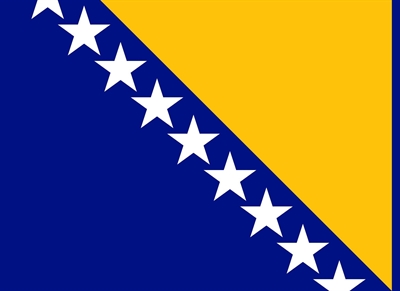Bosnia and Herzegovina - Human Rights Committee - Civil and Political Rights - March 2017
Country: Bosnia and Herzegovina
Type: Intl Mechanism Submission
Issues: Bias and Discrimination, Gender-Based Violence, International Advocacy, Policing, Women's Rights
Mechanism: UN Human Rights Committee
Bosnia and Herzegovina’s Compliance with the International Covenant on Civil and Political Rights, Report for the 119th Session of the Human Rights Committee
Partner: Foundation “Women’s Centre” Trebinje
The Advocates for Human Rights, together with Ženski centar Trebinje, submitted an alternative report on domestic violence in Bosnia and Herzegovina for the 119th Session of the Human Rights Committee.
Bosnia and Herzegovina is composed of two entities, the Federation of Bosnia and Herzegovina and Republic of Srpska (RS), and one self-governing district, District Brcko. Most legislation occurs at the entity level, so the national legislature has limited influence.
Domestic violence remains widespread in Bosnia and Herzegovina. In 2013, a study showed that half of the women surveyed had experienced some form of domestic violence since the age of 15 experienced domestic violence including psychological, physical, and sexual abuse. Of women who experienced domestic violence, only 17% sought help.
Domestic violence cases are underreported due to the lack of legal protection and services provided by the government. Perpetrators are usually only fined for their actions and, if prosecuted, their crimes are tried as misdemeanors. Furthermore, members of law enforcement refrain from physically removing perpetrators from homes because they do not want to separate families and do not know where to relocate offenders. This reluctance forces victims of domestic violence to seek safety away from their homes. Mediation is mandatory as part of the divorce proceedings, even in cases involving domestic violence.
There are also housing and financial barriers for victims of domestic violence. In Bosnia and Herzegovina, there are only nine shelters and those shelters also serve victims of human trafficking, further straining the limited resources of the nonprofit organizations that run the shelters. Moreover, shelters are a viable option only if victims receive a referral from a center for social work (CSW), but CSWs do not recognize psychological violence as a reason to seek shelter. Due to the short stays allowed in shelters, a significant number of women return to violent households after their shelter stay. They are often economically dependent on their abusers, and employers are unwilling to hire them out of fear of jeopardizing others’ safety. A woman’s financial assets are often under the name of a male in the household, creating an additional barrier when victims seek loans from financial institutions.
The authors of the report propose the following recommendations for the Government of Bosnia and Herzegovina:
- Train police, prosecutors, and judges to ensure they use the Criminal Code to prosecute qualifying acts of domestic violence, rather than prosecuting them as lesser misdemeanor offenses.
- Establish clear procedures and sentencing tools for judges in cases of domestic violence and ensure that they are implemented.
- Increase the number of shelters and the funding available to them.
- Remove the CSW referral requirement for shelters and remove the CSWs' authority to set the length of shelter stay.
- Commission and ensure funding for research with respect to: the connections between social status, education, family history, and domestic violence; the benefits of economic empowerment; the number of women who would benefit from such measures; and the impact of such measures on violence prevention.




